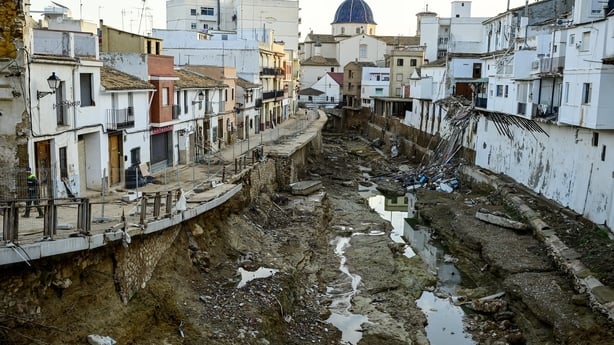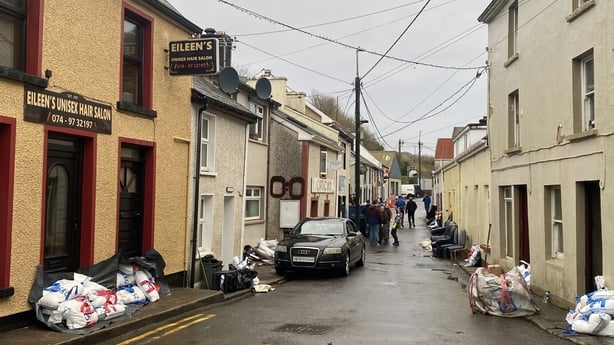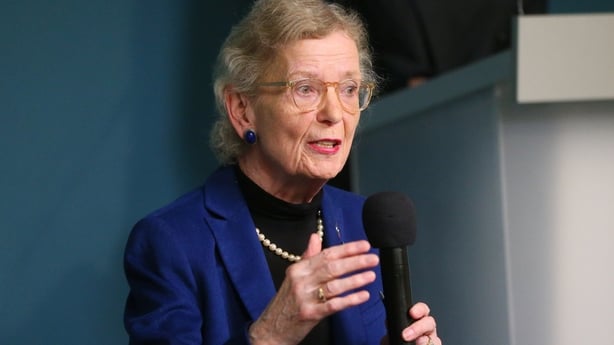Climate change denial will be major challenge in 2025
Climate change denial will be major challenge in 2025
Looking at climate change matters in 2025, the major challenge is clear - climate change denial.
In less than three weeks' time Donald Trump will be inaugurated as US President for the second time.
This is bad news for global climate policy coordination.
President-elect Trump has said he will prioritise fossil fuel production, reduce federal environmental protections, withdraw the United States from the Paris Climate Agreement, reverse the US's commitment to international climate change mitigation and, where possible, undo much of the progress around climate action initiated by President Joe Biden.
Already this has had an impact. It made agreement at last November’s COP29 climate negotiations in Azerbaijan more difficult to achieve.
For instance, Argentina’s President Javier Milei, who is a huge Trump supporter, claims climate change is "a lie dreamed up by socialists".
So emboldened was he by Mr Trump's election in November that he pulled his country's climate negotiators out of COP29 and ordered them home from Azerbaijan after the talks had begun.
The US is the biggest per capita greenhouse gas emitter in the world.
Historically, it is responsible for substantially more of the greenhouse gases now trapped in the atmosphere and warming the planet than any other country on Earth.

Global greenhouse gas emissions will not come down and global climate action coordination will be greatly weakened in 2025 if the US does not play ball.
Mr Trump has already made it abundantly clear he is not going to play along.
Instead, the greatest disrupter ever elected President of the United States is aiming to spend the next four years engineering what he thinks is a competitive advantage for the US by expanding cheap oil production and loosening US climate regulations.
"Drill baby drill" is what he says.
Pump more and more fossil fuels and fracked gas out of the ground to 'Make America Great Again'.
In the process, ignore the global heating potential of the climate pollution that will result.
It is noteworthy that now, in the 21st Century, when it is known how badly, and for how long, fossil fuels will destabilise the climate, that "drill baby drill" will be the cornerstone of the US's energy policy for the next four years.
There is a significantly smaller chance of getting other big greenhouse gas emitting countries to commit to very difficult and expensive upheavals to tackle climate change if the US, the biggest and most aggressive economic competitor in the world, will not even sit down at the table to negotiate.
A majority of the American public voted for Donald Trump and momentum about climate may be shifting in Ireland too.
That much is clear from the findings of the Exit Poll after the General Election at the end of November.
Irish voters were asked if climate change influenced how they voted.
Specifically, they were asked whether they thought the climate actions pursued by the outgoing government, which included the Green Party, were too little, or too much, or just about right.
A total of 51% said the Government had not done enough to tackle climate change while in power.
Yet, in that same Exit Poll, only 4% of the Irish electorate said climate policy influenced how they voted.
So, half the Irish electorate believe the Government failed on climate policy over the past four and a half years.
However, for the overwhelming majority, 24 out of every 25 voters, this failure was not important enough to influence how they cast their votes.

So the basic message from the General Election, is that overall, it does not really matter to the Irish electorate if the government fails or succeeds on climate action.
US voters who elected Mr Trump were obviously of a similar mind.
It's not that most American or Irish people don't care about climate change. Clearly, they do care.
It is just that right now neither believes that climate change policy is a priority issue.
This is the root cause of despondency about climate action in many quarters right now.
The world has just come through a year full of billion-dollar climate-related disasters in 2024 when global temperature records were repeatedly smashed.
Events such as the earliest Category 5 Atlantic hurricane on record.
An unprecedented winter heatwave in the Antarctic with temperatures 28C above normal.
Flooding and destruction of biblical proportions in the Valencia region of Spain where a year’s worth of rain fell in a matter of hours. That claimed the lives of 224 people and destroyed the livelihoods of thousands more.
Nobody can claim to be ignorant about the climate chaos that is unfolding.
Everyone has either seen it, or heard about it, or read about it in myriad reports of extreme weather events throughout the past year, and long before.
Unprecedented heatwaves, droughts, floods, wildfires, extreme storms and devastating hurricanes. It is daily news.
We all know too that these extreme events are occurring with greater frequency and greater intensity than ever before.
Yet for some reason, people seem prepared to push it to the back of their minds and carry on regardless.

If we stopped emitting all greenhouse gases in the morning, the global climate would continue to warm, and the seas would continue to rise for several hundreds of years. That is how long it would take for the greenhouse gases already emitted and now trapped in our atmosphere to dissipate.
Because of the warming that has already taken place there is at least 10% more moisture in the atmosphere than in pre-industrial times.
One does not need to look as far away as Valencia at the end of last October to see what that means.
It happened here in Killybegs, Co Donegal, only a few weeks later when torrential rain caused flooding of 1.2m, transformed ordinary streets into a fast-flowing river, and destroyed homes and businesses along the way.
All that extra moisture in the atmosphere over our heads must fall and all that extra heat means heatwaves, the biggest killers of all when and where they occur, will get worse.
We are in the grip of a global climate emergency. That much has been acknowledged and declared to be so by Dáil Éireann.
There is a rising sense of panic about how hard it will be to keep the increase in global temperatures below 1.5C.
There is no time to waste. Yet it is clear that some sort of complacency about the issue has crept in both here and abroad.
Last November, the Elders, the independent group of global leaders set up by Nelson Mandela which includes Mary Robinson and works for peace, justice, human rights and a sustainable planet, published an open letter.
They highlighted that the geo-political situation has changed so much that it is now increasingly difficult to get countries to agree on a common path forward to address the climate challenge.
In such circumstances, the search for consensus and agreement which has always been the great strength of the COP climate talks process may perhaps become its greatest weakness.
Trying to get consensus from countries who are turning their backs on climate change and have no interest in compromise will simply slow progress down to a trickle when there is such an urgent need to speed things up.
The Elders say it is time to stop trying to make new global climate action agreements but to switch instead to a focus on forcing all countries to urgently live up to, and deliver, the climate action commitments they have already signed up to.
Given the situation we now find ourselves in, it is quite likely the call for global climate policy reform as urged by the Elders will grow throughout 2025.
Indeed, if as seems likely after his inauguration, Donald Trump does proceed with his destructive climate policy agenda, then reform of the COP climate process could be the most effective response to the despondency that his election has caused among environmentalists and climate activists.

대화 참여하기